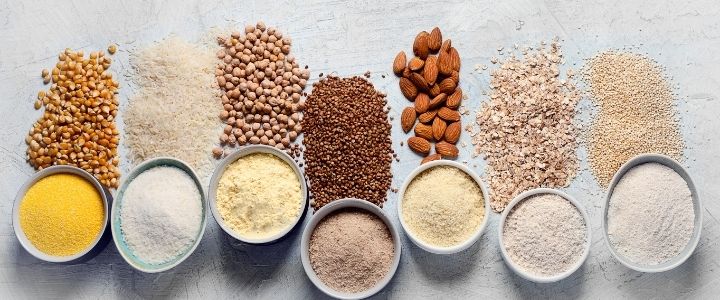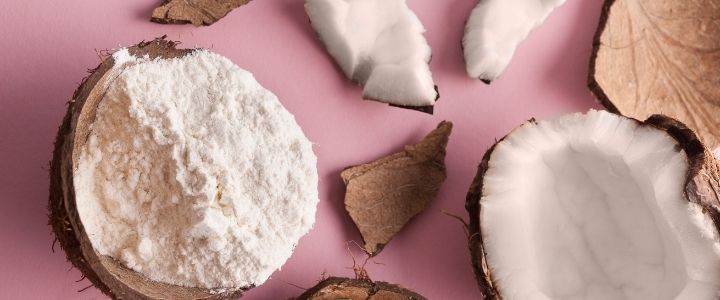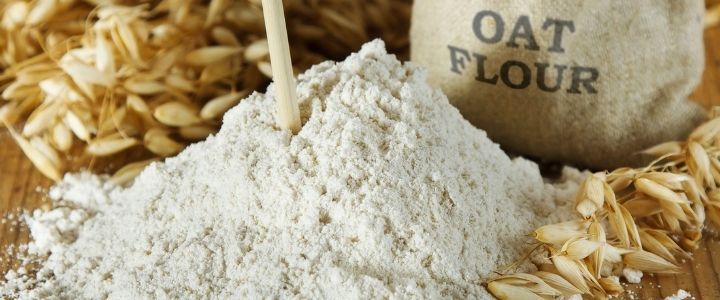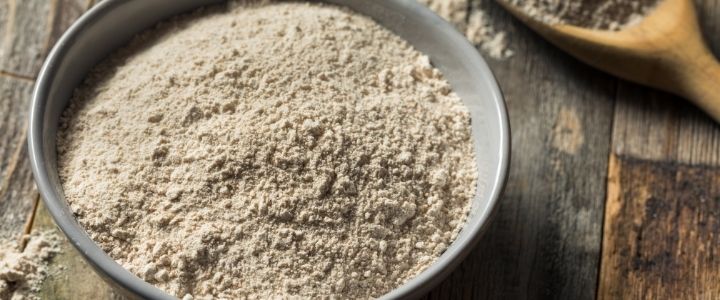
Do you want to substitute white flour with a healthier alternative?
Swapping white flour is sometimes preferred because you want to include more whole grains in your family's diet, a gluten-free alternative, or you know that white flour has gone through lots of processing and bleaching, making it less natural and healthy compared to others.
Here are several flours you can use to substitute them with, along with their nutritional content and whether or not it’s a good alternative.

Almond flour
Almond flour is one of the gluten-free options you can use as a substitute for white flour. This flour is actually not a type of milled flour, but it's just a finely ground almond made from blanched almonds. It's commonly used for airy cakes, cookies and quick bread.
This particular flour may provide more health benefits and taste sweeter than traditional flour. Almond flour is rich in vitamin E and Magnesium. Vitamin E acts as an antioxidant in your body that prevent free radicals from reacting, preventing the aging process and also reduce your risks of heart disease and cancer. Magnesium also means that this flour is better for your blood sugar control and lower blood pressure.
It needs to be noted that almond flour is much higher in moisture content. Thus it may not be an ideal substitute for your white flour. Because it can be tricky to create the best ratio of replacement, and in the end, it can actually alter the texture.

Coconut flour
Another unique alternative for your plain white flour. It’s ideal for those allergic to gluten and wanting a low-carb option. This flour is made from coconut flesh that’s been dried and then grind into small flour particles. It feels and looks similar to grain flour, and also it has a very mild taste
One of the benefits of coconut flour, just like almond flour, is that it's gluten-free. It's also rich in healthy fats that aids in controlling cholesterol and promote heart health. Coconut flour is rich in fiber, making your blood sugar more stable and keeps your digestive system healthy.
Unfortunately, coconut flour has similar characteristics to almond flour. This being that it absorbs more liquid, and the final product might have higher moisture content than intended. It's also another tricky flour when it comes to figuring out the proper ratio of substitution.

Oat flour
Oat flour is a whole grain flour that’s made out of rolled oats. The rolled oats are just simply blitzed and processed until it resembles a fine, powdery flour.
It's another healthy gluten-free alternative to white flour that's rich in manganese, biotin, vitamin B1, magnesium and fiber. The fiber can aid in digestion and keeps you full for a longer time. The vitamins and minerals in oat flour can also help you maintain good health and well-being. In addition, it has a direct impact on your energy levels, brain function and cell metabolism.
The good news is, this flour can act as the perfect substitute for your white flour. This is because it has similar characteristics to your regular white flour and can be substituted in a 1:1 ratio. But be mindful that oat flour is much lighter than regular flour, so we're not talking about a 1:1 ratio in volume, but rather weight. So have your kitchen scale ready, so you can measure the same weight you'll need for oat flour.

Whole wheat flour
Whole wheat flour is an essential food ingredient similar to regular flour, derived from grinding or mashing whole grain or wheat. The difference with regular flour is it uses whole wheat (bran, germ and endosperm) - resulting in a bold and wholesome flour. Compared to regular flour, it has a rich nutty flavor and more fiber.
As mentioned, whole wheat flour has more fiber, vitamins, minerals, and antioxidants than its regular counterpart. The fiber will help you maintain a healthy weight and also keep your digestive system healthy. The vitamins and minerals support your general well-being, while the antioxidant will help with the free radicals.
Whole wheat flour is another good substitute for white flour with a substitute ratio of 1:1 in terms of weight. Just be mindful that it has higher protein content. Thus you might need to add more water. Again, just keep monitoring your dough or batter, and adjust accordingly.

Sorghum flour
Sorghum flour is made from sorghum grains with a light color, a mild sweet taste and a smooth texture. The sorghum whole grain kernels are finely ground to resemble the typical flour.
Like other grains mentioned in this list, Sorghum is rich in the vitamin B group, magnesium, antioxidants, fiber and protein. This means it can help maintain your general well-being, fights free radicals, aids in digestive system health, and promotes cell growth and repair.
Sorghum flour is an excellent substitute for white flour and can even yield smoother, softer texture baked goods. You can substitute this flour with a 1:1 ratio with white flour. Just don't forget to add a binder such as xantham gum to create a successful product.
Conclusion
That was our list of substitutes for white flour. As it turns out, you don't need to sacrifice taste or health for your baked goods! Which one are you going to use first? Feel free to comment.









Leave a Reply